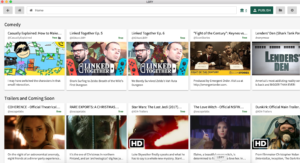3 Examples of Crypto-Token Fueled Innovation

So many fantastic ideas cross my desk on a daily basis, it’s difficult to keep pace. I’m not endorsing any of these, but I am calling attention to them for the reason that I think they demonstrate what is possible in a decentralized world. Invest at your own risk.
Decentralized Search
Presearch is trying to be a “decentralized Google.” Yep, you read that right. The same company that made $26 billion dollars last quarter. They seem invincible, but then again, so did Kodak and Barnes and Noble. As far as I can tell, what Presearch is doing is giving the members of the network, the token holders, the ability to prioritize web content. Essentially, they are trying to crowdsource and decentralize the famous “PageRank.” You get paid in tokens when you contribute, use, or promote the platform. As a token holder, you also get to vote on governance issues…so, for example, instead of Google unilaterally changing the ranking system to improve their ad revenue, you get to vote on how content is returned based on your preference.
I love it for its BHAG nature. Doing their token sale now.
Decentralized Big Data Gathering
Next up, we have Lampix and I want one.
It’s a lamp that you put on your table but creates an augmented reality experience for you. Their video is fantastic and inspiring. Shows a ton of vision. Their token sale is about to get started as well and the idea is that it will create a circular economy that jump starts the eco-system.
For the Lampix AR system to work, it needs a boatload of data so that the machine learning can work. Their answer…give us data (“we need to build a billion-picture-and-description database”) and we will pay you in PIX tokens for your efforts.
Then, you will use those PIX tokens to pay for the data you consume from the device, buy the device itself, etc. It’s a great example of how tokens can be used to pay for open source development AND stimulate a community of participants. What’s more, the data can be used by other VR/AR developers such as HoloLens or Google Glass.
My favorite part is how their community-driven marketing efforts via Gleam are first rate. I fell for it. 😉
Let’s hope the rest of their marketing plan is as sound.
Decentralized YouTube
Now, let’s take a look at Lbry.io. Think “decentralized BitTorrent with copyright protection and creator royalty protection.”
What makes them unique among so many blockchain/decentralized start-ups is that they actually have an app that works! I have it. You can sign up for early access here.
( )
)
Here’s how it works.
Let’s say I create a unique piece of video content (though they support audio, e-books, and more)
Today, I upload it to YouTube and it’s free for everyone to watch (well not really free because you are paying for it with your data, but that is a different post). Maybe you make money when you put advertising in front of it and, if you get a HUGE audience, you can get sponsorships Most likely though, you do not get any direct payments.
With LBRY, however, that is not the case.
You can certainly give the content away for no cost. Or, you can set a price (in the form of LBRY credits) and be sure that every time your content is viewed, you are paid for it. The people who view your content are the ones who pay and there is no middleman.
You get LBRY credits by buying them on exchanges, performing mining services for the network (to verify transactions), hosting files (as this is like a BitTorrent, with no centralized server), or when your paid content is accessed and you receive remuneration.
Since this is a blockchain-based protocol that they are creating, your data and information isn’t available for mining by YouTube. What’s more, when you get paid, since there is no intermediary, you get 100% of the revenue generated.
One thing that is notable about LBRY is that they have never done a token sale. That says something-particularly in this environment-about the commitment to the community and the technology for the long-haul.
There are a lot of questions (i.e. what happens if I upload copyrighted material?) that will raise eyebrows, but the idea that you have total control of your content is pretty appealing.
Also, kudos to these guys for their PR savvy when, in the face of an ADA (Americans with Disabilities Act) ruling against UC Berkeley requiring them to take 20,000 video lectures down, LBRY pulled them all into the decentralized service, thereby keeping the knowledge available for access.
Everything That Can Be Decentralized Will Be Decentralized
Whether these 3 make it or not is not important. It matters to them, of course, and I wish them the best, but the critical takeaway here is that we are continuing to see the first generation of protocols and applications (along with OpenBazaar) to focus on actual end consumer value. We are moving out of the whitepaper stage (at least in the LBRY case and soon others) into the non-developer only app stage.
We are also seeing more and more ways of how crypto-tokens can be used to stimulate circular economies among like-minded users AND simultaneously fund open source development.
It’s crazy, I know, to think that Google might one day not be relevant or even around. But I am sure that the 50% of the S&P 500 from 2000 who have since been relegated to the history books (wikis) felt the same way.
It’s an exciting time.